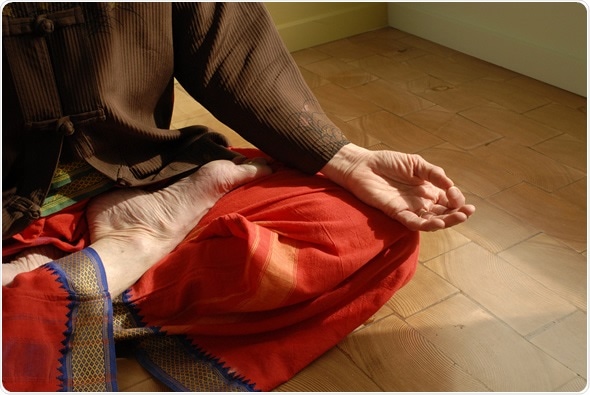Hormone replacement therapy (HRT) is commonly used to treat menopausal symptoms such as night sweats, hot flushes, insomnia, and vaginal dryness. The risks of HRT are high, however, and research has shown that this therapeutic approach may increase the risk of breast and ovarian cancer.
Natural HRT Alternatives
There are several natural treatment alternatives to HRT which can help control menopausal symptoms effectively. Although the below alternatives shouldn’t be a replacement for conventional medical intervention, they can complement current menopause treatments.
Lifestyle Changes
Regular exercise helps deal with hot flushes and enhances sleep; it also helps improve bone density and combat stress, anxiety, and depression. Walking, dancing, aerobics, and running are ideal.
Wearing loose clothing and staying cool could help relieve night sweats and improve sleep quality. Also, try yoga or other relaxing activities to reduce stress. Smoking cessation is another important factor as smoking can be a cause of hot flushes.

Diet
Avoid spicy food, alcohol, and caffeine as they can trigger hot flushes. Additionally, a healthy diet containing calcium and vitamin D-rich foods is essential to fight osteoporosis, a common symptom of menopause.
Foods high in calcium and vitamin D include milk, cheese, yoghurt, and sardines. Other dietary components that may assist in alleviating menopausal symptoms include:
- B complex vitamins: B vitamins have been shown to be effective in relieving stress, anxiety, panic attacks, and depression by supporting the adrenal glands during times of stress. Supplements containing B1, B6, B12, and folic acid can be helpful if a diet lacks B vitamins. Foods rich in B vitamins include:
- Meat
- Egg
- Fish
- Greens
- Dairy
- Omega 3 fatty acids: Omega 3 fats promote hormone balance and provide lubrication, hence why they are often used to treat vaginal dryness. Good sources of omega 3 fatty acids are oily fish, nuts, greens, and seeds.
- Vitamin E: Taking about 400 IU of Vitamin E per day has been found to be beneficial in managing hot flushes and vaginal dryness in menopausal women. Food sources of Vitamin E include:
- Seed oils
- Avocados
- Leafy greens
- Nuts
- Wheat germ
- Whole grains
- Tibolone: This synthetic hormone contains a combination of estrogen and progestogen. It is used to relieve post-menopausal symptoms in women with a womb. It is not effective in relieving perimenopausal symptoms.
- Phytoestrogenic foods: Phytoestrogen-rich foods help control symptoms of menopause as they balance the function of estrogen receptors in the cell membrane. Such foods include:
- Lentils
- Soya foods such as tofu and miso
- Linseeds
- Garlic
- Mung beans
- Fennel
- Celery
- Parsley
Antidepressants
Antidepressant medications may help ease depression-like symptoms experienced during menopause. Selective serotonin reuptake inhibitors (SSRIs) such as paroxetine, fluoxetine, and citalopram can help some patients, and serotonin and noradrenaline reuptake inhibitors (SNRIs) such as venlafaxine are said to be effective in controlling menopausal symptoms.
The benefits of antidepressants are typically short acting and aren’t considered a long-term solution for real psychological issues. Also, both SSRIs and SNRIs can cause side effects such as dizziness, nausea, anxiety, and sleeplessness.
Gabapentin
A medicine used to treat epileptic pain and seizures, Gabapentin has been shown to ease menopausal symptoms, though it is not licensed for use in menopause. Side effects include fatigue and dizziness.
Lubricants and Moisturizers
Available in pharmacies, lubricants help reduce vaginal dryness. Estrogen creams work in a way similar to HRT to ease vaginal symptoms of menopause and are less risky than HRT tablets.
Clonidine
Originally developed to control blood pressure, clonidine is shown to be effective in reducing hot flushes and night sweats. Side effects include drowsiness, dry mouth, depression, and fluid retention.
Alternative Remedies
Aromatherapy and reflexology have been found to be beneficial in some women for controlling menopausal symptoms. Cognitive behavioral therapy has been shown to improve mood swings and anxiety in women going through menopause.
Herbal products such as black cohosh, red clover, soy, dong quai, angelica, and evening primrose oil are said to be effective in treating menopausal symptoms, though the quality of these unregulated products available in health shops is a matter of concern. These products can also interfere with other treatments and cause a myriad of side effects.
References
- http://patient.info/health/menopause-alternatives-to-hrt
- http://www.nhs.uk/Conditions/Hormone-replacement-therapy/Pages/Alternatives.aspx
- http://www.healthspan.co.uk/menopause-advice/hrt/7-natural-hrt-alternatives
Further Reading
- All Hormone Replacement Therapy Content
- What is Hormone Replacement Therapy?
Last Updated: Feb 26, 2019

Written by
Susha Cheriyedath
Susha has a Bachelor of Science (B.Sc.) degree in Chemistry and Master of Science (M.Sc) degree in Biochemistry from the University of Calicut, India. She always had a keen interest in medical and health science. As part of her masters degree, she specialized in Biochemistry, with an emphasis on Microbiology, Physiology, Biotechnology, and Nutrition. In her spare time, she loves to cook up a storm in the kitchen with her super-messy baking experiments.
Source: Read Full Article






